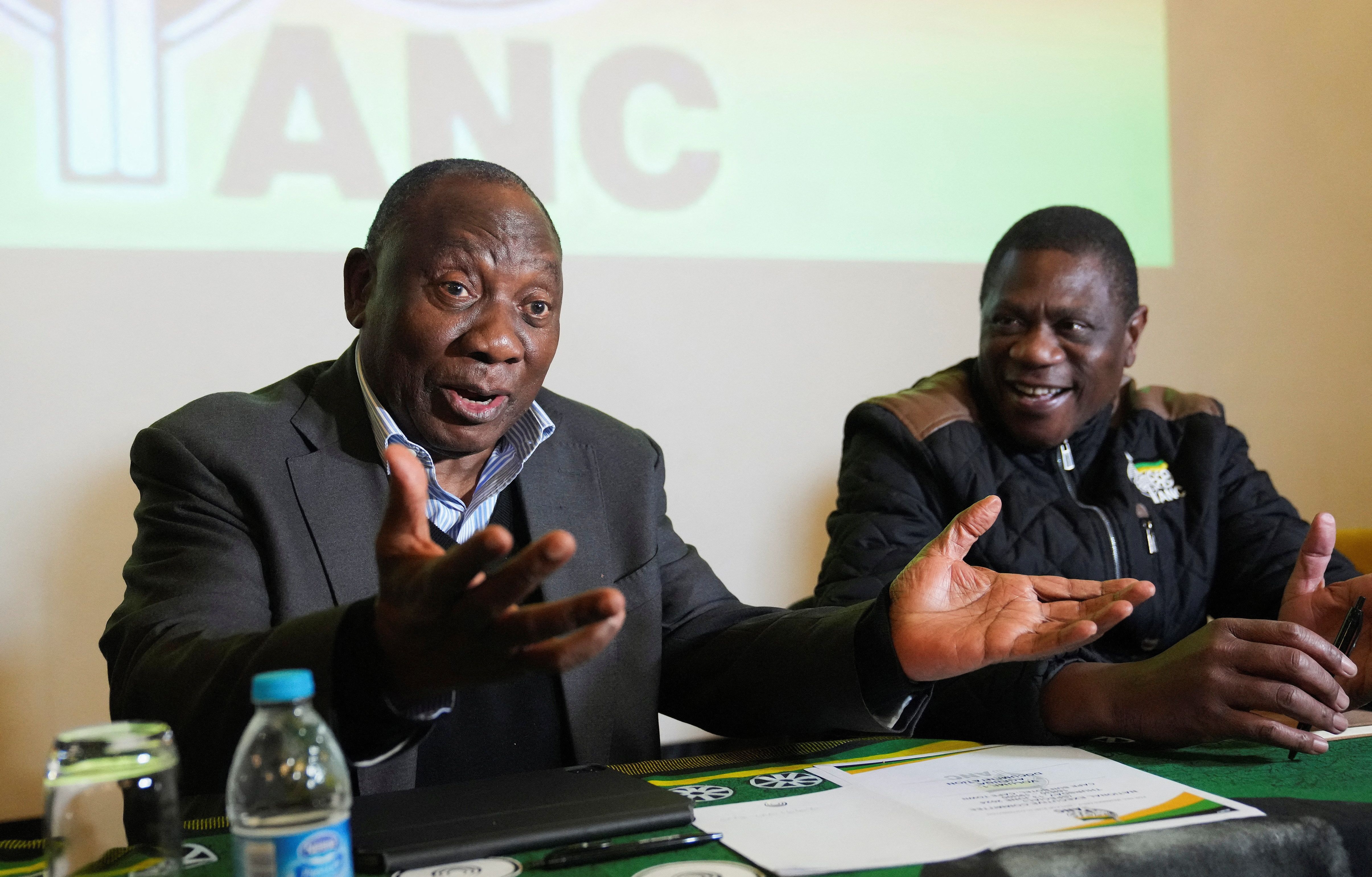On May 29, South Africans went to the polls in one of this year’s most anticipated elections. In an outcome that shook the country’s political system, the ruling African National Congress (ANC), which has governed South Africa since Nelson Mandela became the country’s president following the fall of apartheid, lost its parliamentary majority for the first time since taking power in 1994.
As a result, the ANC has been forced to form a coalition with rival parties. It has forged a political alliance with the center-right, pro-business Democratic Alliance (DA) party, the Inkatha Freedom Party (IFP), the right-wing Patriotic Alliance (PA), and a small party called GOOD, which holds a single seat in parliament. Collectively, this coalition, which could still grow as the ANC continues to negotiate with other parties to expand its unity government, accounts for 68% of the seats in the country’s national parliament, which convenes in Cape Town. Leaning on its newly formed coalition, the ANC successfully reelected Cyril Ramaphosa as the country’s president on June 14.
The ANC’s poor showing in the parliamentary election is largely the result of frustrated voters responding to the party’s inability to improve the country’s severe economic challenges and reduce widespread wealth inequality, whose roots date back to apartheid. These issues have been aggravated by the ANC’s self-admitted corruption, which has handcuffed its ability to respond to South Africa’s economic issues and undermined the credibility of its commitment to improving the welfare of the the great majority of the country’s 60 million people.
Under the ANC, South Africa’s foreign policy has made global headlines in recent months. In December, it brought a case before the International Court of Justice (ICJ) — the U.N.’s legal body charged with resolving international disputes between countries — accusing Israel of committing genocide against the Palestinian people in its war in Gaza.
The center-right DA, which was then the ANC’s main opposition party, initially opposed the ANC’s decision to bring the case. The DA has since, however, said that it will abide by the ICJ’s decision and has condemned Israel’s violence in Gaza. Despite this, the DA remains unwilling to call Israel’s conduct a genocide, thus suggesting that it remains opposed to the ANC’s case and decision to take it to the ICJ.
The ICJ case has also strained relations with the United States. While Pretoria has long been one of the world’s most vocal proponents of the rights of Palestinians, Washington has been Israel’s strongest international supporter and supplier of weapons. In response to South Africa’s ICJ case, in February, several members of the U.S. Congress joined in proposing a bill that urged a “full review” of Washington’s relations with South Africa.
The DA has also been vocally skeptical of the country’s participation in an expanding BRICS, an organization originally composed of Brazil, Russia, India, China, and South Africa and which has recently added several new members and seeks to act as an alternative to Western-based international forums. South Africa has used BRICS to enhance its influence globally in a world dominated by institutions built by the West after World War II.
As the ANC’s largest coalition partner, the DA will likely have a greater say in the government’s domestic and foreign policy moving forward. But given that the ANC, which has led South Africa’s case at the ICJ, still holds the presidency and will likely continue to run the country’s foreign ministry, the DA is unlikely to be able to substantially alter South Africa’s foreign policy, though it might attempt to use foreign policy as a bargaining tool in debates on the ANC’s other efforts in parliament.
Neither the IFP nor the PA — two smaller coalition partners — focused much on foreign policy while campaigning, instead emphasizing the need for the government to shift domestic policy to promote economic growth and reduce inequality. Neither party, for example, mentioned foreign policy in their respective manifestos, although PA leadership has openly questioned South Africa’s support for Palestine.
Two parties that performed well in May’s election but have stated that they will not join the unity government are the left-wing uMkhonto weSizwe (MK) and the communist Economic Freedom Fighters (EFF). Both parties are staunchly anti-West and see the international system, from the U.N. to international legal bodies such as the ICJ and the International Criminal Court, as having been built to serve Western interests at the expense of poorer Global South states. The MK, which is headed by former South African President Jacob Zuma, is widely seen as being more supportive of South Africa building ties with Russia than with the United States.
But Pretoria’s long-term foreign policy of non-alignment — by which the country avoids forming a full-fledged alliance or even close security partnerships with Western states, Russia, or China, and instead chooses to support whatever policies promote its own interests — is unlikely to change following the election.
Ziyanda Stuurman, a senior analyst specializing in southern Africa for the Eurasia Group, told RS that “foreign policy is likely to be a second- or third-order priority for the new … unity government.” Stuurman said that “all of the parties to the coalition have divergent foreign policy positions, (on Russia-Ukraine, the government's BRICS alliance ties, and the Israel-Hamas conflict) — and given the very sensitive balance that the alliance will have to maintain going forward — foreign policy issues will likely be dealt with on a case by case basis as opposed to forming part of the most crucial policy decisions going forward.”
She adds that the country’s current foreign minister, Nelendi Pandor, will likely continue in the role. If not, then the ANC’s Second Deputy Secretary-General Maropene Ramokgopa is likely to be her successor. Ultimately, Stuurman says that “the South African government's foreign policy positions are unlikely to significantly change in the coming months.”
















